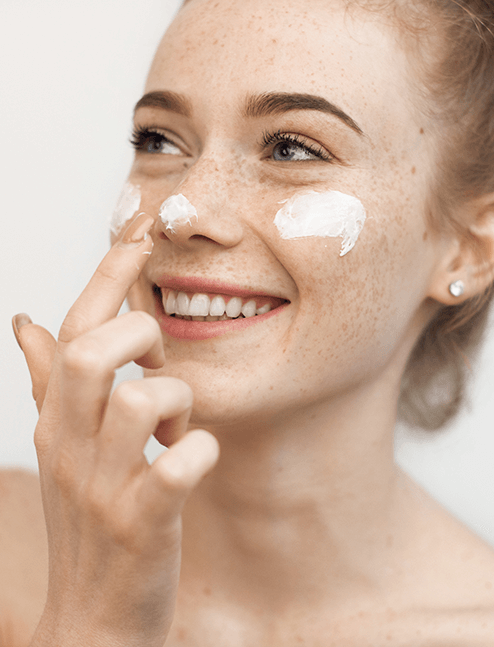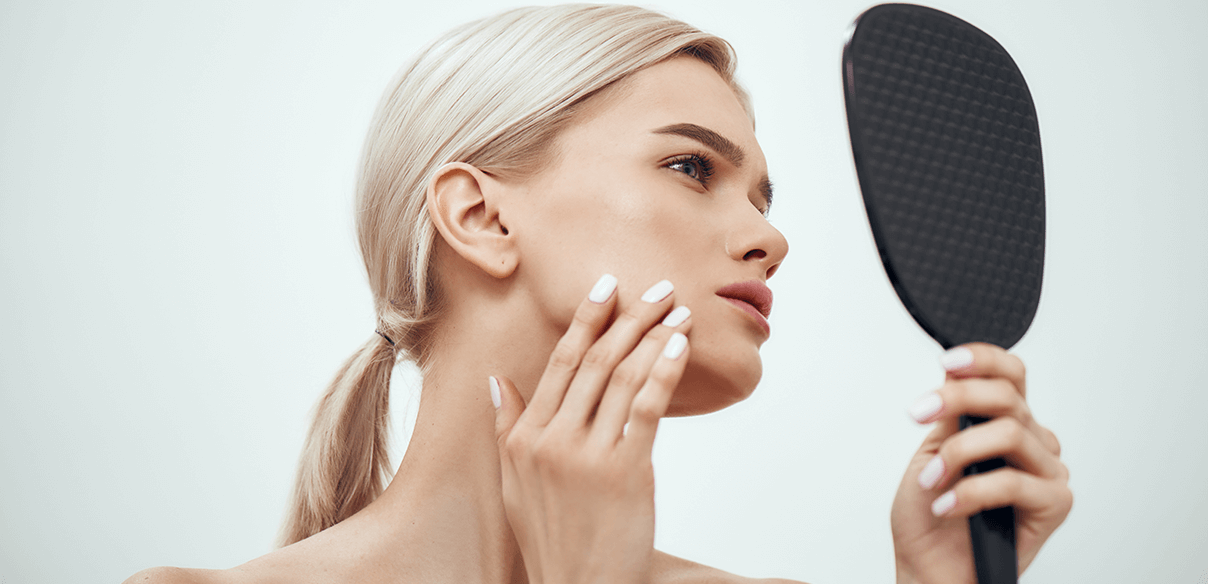Fragile, often irritable and prone to redness, sensitive skin requires special daily care. The right type of care and a few good habits can often improve the tolerance of the skin: explore our tips to help even the most fragile skin types stay healthy!

- 1. Use only dermo-cosmetic care and make-up products that are specially designed for sensitive skin – fragrance-free, preservative-free and hypoallergenic.
- 2. Whenever possible, avoid washing your face with tap water, which is often hard and poorly tolerated by sensitive skin. Instead, use a thermal water spray, then carefully dry your skin by dabbing with a soft towel, but do not rub. You could also use a milk or high tolerance micellar water, applied with cotton wool.
- 3. Never wash with soap, which is too caustic, and avoid scrubs, which are too aggressive for your delicate skin.. If your skin can bear it, try a gentle scrub once or twice a month, using a sensitive skin formula.
- 4. After a shower or a bath, dry your face by patting it with a soft towel, but do not rub.
- 5. Lack of hydration increases the sensitivity of the skin. So, morning and evening apply a moisturizer to your face, making sure you choose a high tolerance product specifically designed for sensitive skin care.
- 6. Make-up is not prohibited for sensitive skin, but it must be carefully chosen: stick to ranges specifically designed for sensitive skin, sold in pharmacies or hygiene product shops. High tolerance, usually fragrance-free and preservative-free, they are gentle with the most sensitive skins.
- 7. Restrict your use of cosmetics as far as possible – the more products you use, the greater the risk of skin reaction. When you find one that suits your skin, stick with it.
- 8. Before adopting a new cosmetic product, test it on an inconspicuous area: behind your ear or on you neck, for example.
- 9. In winter, do not overheat your home and use a humidifier in your bedroom at least; dry air in heated interiors is aggressive for the skin and may cause redness.
- 10. Learn to identify factors that trigger skin reaction and avoid them where possible.
- 11. If your skin still reacts despite these precautions, consult a dermatologist.


